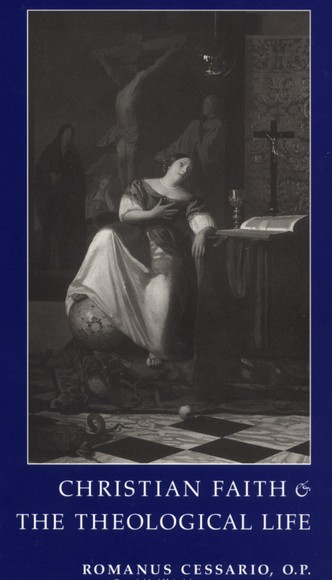 On page one of his 1996 book Christian Faith & the Theological Life, Dominican Romanus Cessario makes a distinction. “To acquire knowledge about God is one thing; to commit oneself to him is another.”
On page one of his 1996 book Christian Faith & the Theological Life, Dominican Romanus Cessario makes a distinction. “To acquire knowledge about God is one thing; to commit oneself to him is another.”
The two ought to be related, one would hope: it’s hard to say which spectacle is more sorry, a person who handles doctrinal facts without any personal relationship to the God those facts are about, or a faithful Christian who loves God but refuses to take on any understanding of his revealed character.
But even though knowing about God and knowing God belong together, they are not the same thing. To tell them apart, Cessario explains a terminological distinction that is available in French usage:
In order to maintain this distinction, spiritual authors of the classical French tradition distinguish between the terms ‘théologique’ and ‘théologal.’ The former term describes what pertains to theological study and learning, whereas the latter denotes what pertains to the divinized life and practice of the Christian believer. Thus in French, la vie théologal directly signifies a life transformed by grace and animated by the virtues of faith, hope, and charity –in short, the godly life.
“Theologal,” as in “the theologal life,” is a fine little word. You might say it takes the “ic” out of the theological. It also gets flagged by spellcheck, and anyone who decides to start using it will have to live with a perpetual red wavy underscore. But anyone who decides to start using it will also have to live with the fact that it’s not an English word.
Or not quite an English word. The Oxford English Dictionary lists it as obsolete, and offers a few old occurrences of it. For instance, there’s this from a 1484 discussion of the virtues, “of whiche seuen vertues the thre ben theologale or deuyne, And the other four ben cardynal. The theologal ben fayth, hope, & charyte.” We don’t say “theologal” now, just as we don’t say “deuyne” or even (spelling updated) “divine” to mean “theological.” Come to think of it, perhaps the Master of Divinity degree should be re-christened the Magister of Deuynitie. That would clear things up!
Even great John Donne used the word theologal, in a citation given by both the OED and Cessario: “Theologall vertues, Faith, Hope, and Charity, are infus’d from God.” If its use by Donne doesn’t make it good English, what would? As Cessario points out, the 1994 English translation of the Catechism of the Catholic Church makes reference to the prayer of Jesus as “the theologal path (the path of faith, hope, and charity) of our prayer to God,” and calls the first three petitions of the Lord’s Prayer “more theologal” than the last four, as drawing us toward the Father’s glory (“thy name, thy kingdom, thy will”).
Even with these precedents, though, Cessario admits that “today the English term ‘theologal’ is not widely employed,” and consigns it to remain in the French spiritual literature. There is also a cognate in Spanish, by the way: the Jesuit Ignacio Ellacuría made regular use of “teologal,” and his English translators followed suit. But in writing clear English, Cessario decided to eschew the peculiar form theologal and instead use the phrase “the theological life” when writing about “a human life that is infused with divine grace and shaped by the theological virtues.” So even in the title of his book, the phrase “the theological life” is intended to convey what he’d like to call “the theologal life,” that is, the life “that is both elevated by divine grace and actualized by infused virtues.”
If we wanted to make the distinction a regular part of our discourse, we might try to bring the word theologal back into circulation. Evangelicals in particular have a history of caring very much indeed about the difference between knowing about God and knowing God; between mere head-knowledge and the kind of heart-knowledge that expresses a personal relationship; between what I used to hear King James people call “believing in” and “believing on.” But then we would need to press the adjective until it yielded a usable noun (theologue?) Or we could go the other direction and make our words for merely intellectual God-talk sound even more abstract and technical: theologism, theologician, theologistic, theologistical. We could distinguish between theologues and theologists. But it seems we’d have to explain what we meant every time we used such terms, and there must be more frictionless ways of communicating what needs to be said.